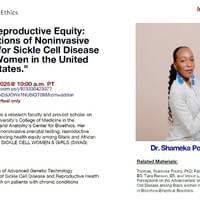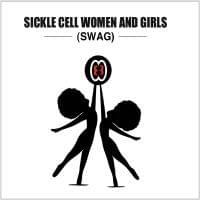
- …
- …
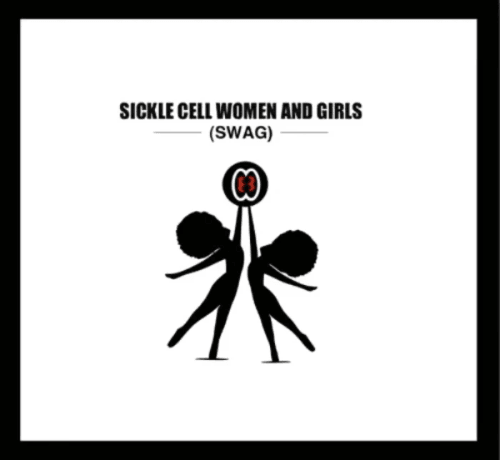
OUR MISSION:
To bridge the knowledge gap between sickle cell disease and reproductive health issues by listening and supporting the health experiences of women and girls.
OUR VISION
The scientific research data of the Sickle Cell Women And Girls Research Lab (SWAG Research Lab) is fundamentally rooted in the ethical, legal, and social implications (ELSI) works of maternal and child health, reproductive genetics, Noninvasive Prenatal Testing (NIPT) for sickle cell disease, and health equity, particularly at the intersections of sickle cell disease and reproductive decision-making. Our lab data is built upon collaborative scientific research works that received official ethical approval over the years.
Our data collections across respective institutions are stated below:
- Spelman College [2008-2010]
- Georgia State University [2013-2015]
- University of Miami, College of Arts and Sciences [2018-2020]
- National Institutes of Health (NIH)/ National Genome Research Institute (NIH / NHGRI) [2021-2022]
- University of Ghana-East Legon’s West African Center of Cell Biology and Infectious Pathogens (WACCBIP) / Korle Bu Teaching Hospital’s Ghana Institute of Clinical Genetics (“Sickle Cell Clinic”) [2022-2023]
- Harvard University, School of Public Health, Department of Global Health [2022-2023]
- The Ohio State University, College of Medicine, Department of Biomedical Education & Anatomy, Division of Bioethics [2023-CURRENT]
OUR HISTORY
In 2022, Dr. Shameka Poetry Thomas, PhD, founded and established the Sickle Cell Women and Girls (SWAG) Research Lab [formerly the SWAG Project] to advance the overlap in reproductive health research, advocacy, and patient education for women and adolescent girls living with sickle cell disease. Dr. Thomas and her research teams have collected over 75 patient cases on Black women’s reproductive health experiences across the United States and Ghana, West Africa, with a primary on maternal-child health and reproductive genetics.
To date, Dr. Thomas has trained over 10 research assistants, as well as pre-med and graduate students, in conducting biomedical research and patient-centered studies in maternal-child health and reproductive health. She has also supervised multiple undergraduate theses and master’s research projects in the USA, South Africa, Kenya, Ghana, and Europe.
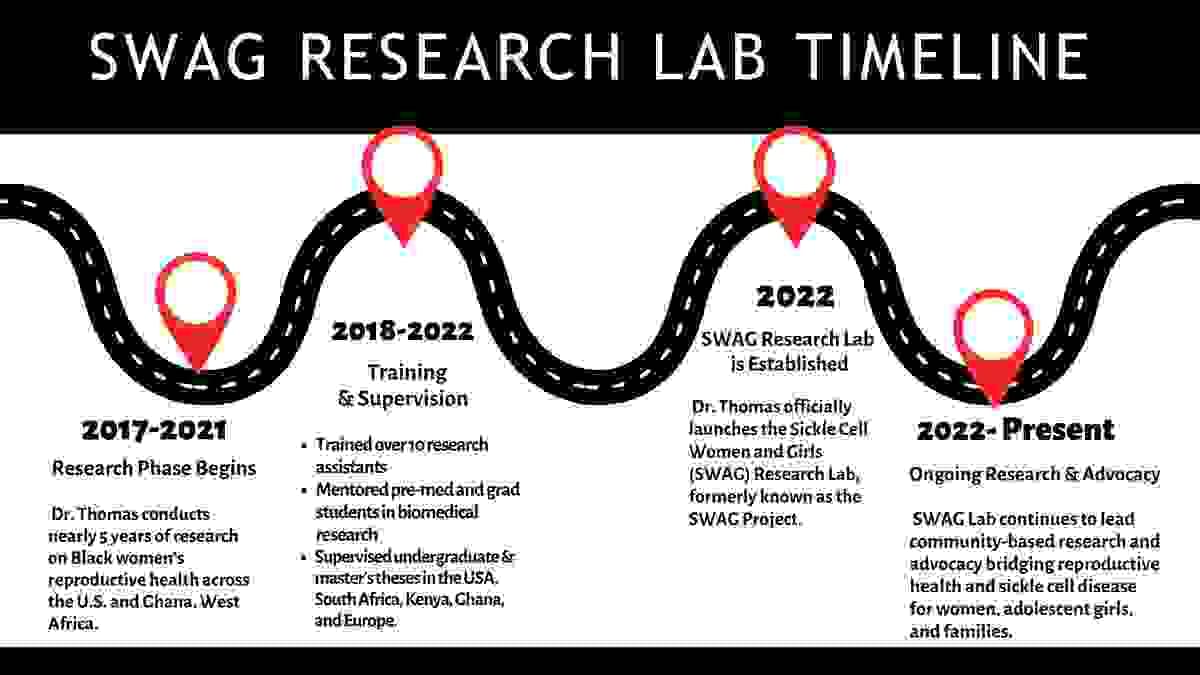
OUR APPROACH
At the SWAG Research Lab, we are dedicated to placing women and girls with sickle cell disease at the center of our research. We ensure they have access to reproductive and maternal health resources and receive the support they need alongside healthcare professionals. With community engagement at the heart of our work, we prioritize listening to and supporting the health experiences of patients throughout every step of the research process.
We view research as a powerful tool to transform healthcare. Our goal is to influence health policy, clinical implementation, and healthcare systems by developing evidence-based, comprehensive care models. These models are designed to provide integrated, wellness-driven care that sustains the long-term health and well-being of women and girls living with sickle cell disease.
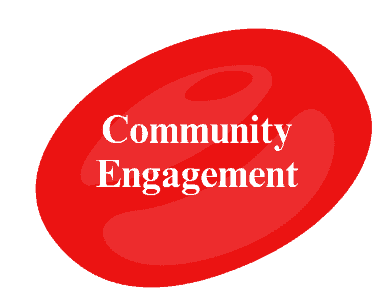
Community Engagement
- We take the time to build up our girls and women as we are building our research
- We seek to create spaces that bring together patients, their communities. We’d like our patients to feel seen & be heard with like-minded individuals.
- Our patients are at the heart of our work and they fuel our research. We are intentional about including them at each step of the research process.
- In our research, we incorporate patient perceptions, experiences, needs, and dreams of our girls and women.
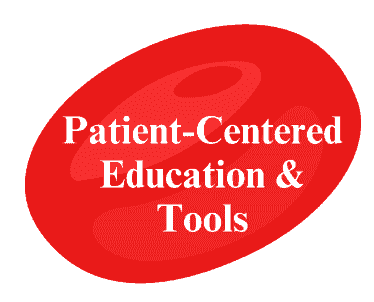
Patient-Centered Education & Tools for Patients, Caregivers, Healthcare Providers, Clinicians and Practitioners
- Our patients are adolescents, young adults, teen moms, older moms, women, elders and grandmothers!
- We share health education for our patients and their surrounding community pertaining to sickle cell disease and trait; mental wellness; and reproductive, maternal and child health.
- We provide patient-centered training for our healthcare providers, clinicians and practitioners.
- Our education centers the experiences, needs, and dreams of our patients.
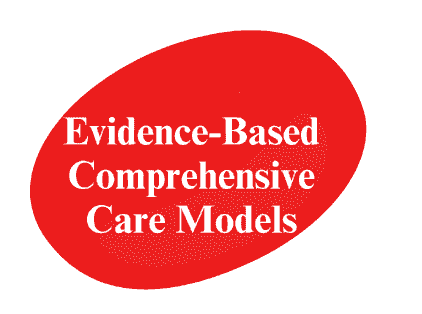
Evidence-Based Comprehensive Care Models with Integrated Care & Mental Wellness
- Currently, sickle cell women and girls seek care from multiple providers (e.g., primary care provider, hematologist, obstetrician-gynecologist, herbalist, naturopathic doctor) that do not communicate together.
- Patients face the largest burden telling and re-telling their healthcare experiences to all their providers.
- We are designing new healthcare models that include all pathways of care, integrated into one system that can be implemented in the healthcare setting.
- We emphasize mental health resources to lift the burden and restore wellness to patients.
SCIENTIFIC RESEARCH
Grant funding for the development of the SWAG Research Lab is partially sponsored by Harvard University, School of Public Health, and The Ohio State University, College of Medicine. These funds support our ongoing research on women and girls living with sickle cell disease, including studies on reproductive health, maternal-child health, and patient-centered care.
Disclaimer: The scientific work produced by the SWAG Research Lab represents the intellectual property of the organization and does not necessarily reflect the views of the affiliated academic institutions listed.
Access Research Briefs: To download our scientific briefs and research publications, click “View on SlideShare” located at the bottom left of each brief below. Our research highlights evidence based insights, community engaged approaches, and strategies to advance care for women and girls with sickle cell disease.
PODCAST EPISODES
Centering Reproductive Health of Black Women with Sickle Cell Disease
On the Bioethics in the Margins podcast, Dr. Shameka Poetry Thomas discusses the experiences of Black women with sickle cell disease during pregnancy, a population often overlooked in research despite high maternal mortality rates. She explores non-invasive prenatal testing (NIPT) and its relevance for women with sickle cell disease, while examining how racism, bias, and stigma influence patient experiences. This episode emphasizes the importance of qualitative research, capturing diverse perspectives, and sharing findings to inform patient-centered care and health equity initiatives.
Examining Women's Health Care
On episode 35 of the Now at Ohio State podcast, Dr. Shameka Poetry Thomas and Dr. Ashley Felix discuss healthcare disparities affecting women, highlighting ongoing efforts to reduce inequities and improve access to care. The conversation explores practical strategies for fostering a more equitable healthcare system, emphasizing compassion, fairness, and patient-centered approaches. This episode provides actionable insights and a roadmap for creating healthcare systems that better serve all women, including those living with sickle cell disease.
Meet The Founder
DR. SHAMEKA POETRY THOMAS, PhD
Global Maternal-Child Health Scientist & Medical Sociologist

Dr. SHAMEKA POETRY THOMAS, PhD is the founder of the SICKLE CELL WOMEN & GIRLS (SWAG) RESEARCH LAB, which was spearheaded during her data collection at the Ghana Institute of Clinical Genetics and the University of Ghana. Dr. Thomas is an Assistant Professor, research faculty, and provost scholar on the tenure track at The Ohio State University’s College of Medicine in the Department of Biomedical Education and Anatomy’s Center for Bioethics. Dr. Thomas completed postdoctoral fellowships at the National Human Genome Research Institute (2020-2022) and the Fogarty Global Health fellowship at Harvard University, School of Public Health. Dr. Thomas is an alum of Spelman College, graduating with distinguished honors in global health research.
She also worked for a few years as a Research Associate at the American Institutes for Research in San Mateo, California before earning her PhD at University of Miami, graduating with the Most Outstanding Dissertation Award. Her research focuses on global bioethics, noninvasive prenatal testing, reproductive genetics, and sickle cell disease.
Currently, Dr. Thomas also serves as an editor for Springer Nature’s Maternal and Child Health Journal, the co-chair for the Healthcare Ethics and Medical Humanities Groups | ASBH, and as a medical advisory board member for the National Sickle Cell Reproductive Health Education Directive. She was recently nominated for 40-under-40 Health Leaders 2025 Award for Scientific Impact.
1. How did SWAG Research Lab obtain its name?
The acronym “SWAG” is also an affirmation of what it means to be alive with wellness and confidence, as an action phrase to inspire feeling “seen” and “heard” beyond one’s health condition. I love having my own style! I often infuse my love for fashion into my science life (as a form of my own "swag"). Thus, I was inspired to create and apply the name ‘SWAG” as an affirmation of sickle cell wellness and health during data collections in Ghana, West Africa.
2. How was the SWAG Logo created?
In efforts to be inclusive of patients who have sickle cell disease, our SWAG Logo was created by a Ghanaian patient who is a graphic artist living with sickle cell disease. The SWAG logo is symbolic of a woman and girl, upholding an adinkra symbol that means “in unity there is strength.”
3. Where are you from? Where did you go to for school?
I am born and raised in Miami, Florda, USA. I am a 1st generation college graduate and graduated with honors from Spelman College (a historically Black college for women) in Atlanta, Georgia. During my time at Spelman, I also studied abroad at University of Cape Town, South Africa and attended University of California-Berkeley as a distinguished global health scholar and exchange student. After graduating with my bachelors, I worked for 2 years at the American Institutes for Research in Georgetown, Washington DC and relocated to their office in Silicon Valley, California. Afterwards, I decided to become a research consultant at a nonprofit research firm for one year. Eventually, these research experiences led me back to desiring to earn my PhD. Thus, in a full circle moment, I went on to eventually completed my PhD in August 2020 at the University of Miami, graduating with honors. My dissertation was nominated for the Most Outstanding Dissertation Award. I enjoy conducting research and it brings me joy and fulfillment to contribution to scientific knowledge as a Black women scholar.
4. What inspires you to do scientific research on maternal-child health and sickle cell disease?
I usually follow a pulse in my gut. Therefore, I strongly believe I was guided to pursue maternal-child health and sickle cell disease. After I gave birth to my daughter (who is currently a 14-year-old High School student), I had some serious questions about the state of maternal health in the United States and across the world.
5. What is your favorite way to balance health and wellness for yourself?
My favorite way to balance my mental health and wellness is to slow down and practice the freedom of leisure. I love to sit on my yoga mat with a cup of Chamomile tea and polish my toes. I also enjoy taking a walk through a quiet, cozy park and dancing to Salsa, Kizomba, or Afrobeats music for joy.
6. What is your favorite song?
I love music, so it is hard to pick just one song. I have songs for every moment of the day and for every emotion I feel. Perhaps, one of my favorite songs is called “Feeling Good” by Nina Simone.
7. What is the next country you would love to travel to?
Ah! I love traveling! I am so happy to say that I have completed one of my lifegoals and traveled to all 4 regions of the entire African continent (e.g. North Africa, Southern Africa, East Africa, and West Africa). One of my favorite places I truly enjoyed traveling to is perhaps Cuba. I loved Cuba, so much! Hmmm, the next country I would love to travel to is Brazil.
PUBLICATIONS
Dr. Shameka Poetry Thomas’ research focuses on reproductive health, maternal and infant health disparities, and patient-centered care, with particular attention to Black women’s experiences, including those living with sickle cell disease. Her work examines trust and participation in clinical research, noninvasive prenatal testing (NIPT), and the importance of centering Black women’s narratives in reproductive health. Through both qualitative and translational research, Dr. Thomas advances health equity, amplifies patient voices, and informs community engagement, scholarship, and health policy.
This collection features scientific publications and peer-reviewed articles coauthored with her research colleagues, representing a body of work dedicated to improving care, research participation, and policy for women with sickle cell disease.
Access Publications: Use the cursor on the right to scroll through all articles. To download publications, click “View on SlideShare” at the bottom left of each publication.
SWAG RESEARCH LAB INTERNAL/ EXTERNAL NETWORK of RESEARCH COLLABORATORS
*Over the years*

Professor, College of Nursing, Associate Director of Research, Center for Bioethics
The Ohio State University Wexner Medical Center

Assistant Professor in Clinical Medicine/ Division of Hematology
The Ohio State University Wexner Medical Center

Associate Professor
Center for Medical Ethics & Health Policy/ Baylor College of Medicine

Associate Professor of Public Health and Founding Director of the Maternal and Reproductive Health Equity (MRHE) Research Lab/ The University of Texas at Arlington/ Spelman College Alum, class of 2010

Associate Professor of Global Health and Nutrition
Global Health and Population, Harvard University, T.H. Chan School of Public Health

Ms. Jessica LeConte
Support Coordinator for Advancing SickleCell Advocacy (ASAP) Group and facilitates the Bone Marrow Transplant CHAT | Sickle Cell Advocate | and Caregiver for a child living with sickle cell disease.

Licensed Psychologist
University of Kentucky Lyman T. Johnson Postdoctoral Fellow
Connecting Cultures/NESTT | Clinical Consultant
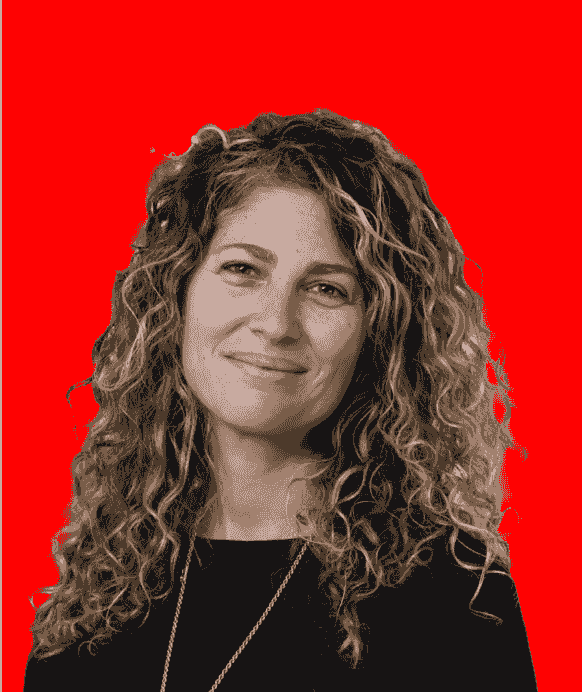
Assistant Professor Department of Biomedical Education and Anatomy Division of Bioethics,
The Ohio State University College of Medicine and Department of Philosophy

Clinical Assistant Professor, Pediatrics, Nationwide Children’s Hospital and Assistant Professor, The Ohio State University College of Medicine, Division of Bioethics. Director, Clinical Bioethics Consultation Service, The Ohio State University Wexner Medical Center.

Dr. Lisa Labita Woodson, PhD, MPH
Founder of Beyond Global Health [www.beyondglobalhealth.org]
Epidemiologist & Global Health Scholar, The University of Arizona, School of Public Health | Fulbright-Fogarty/Global Health Equity Scholar (GHES) funded research in the Amazon with Project Mamás del Río.
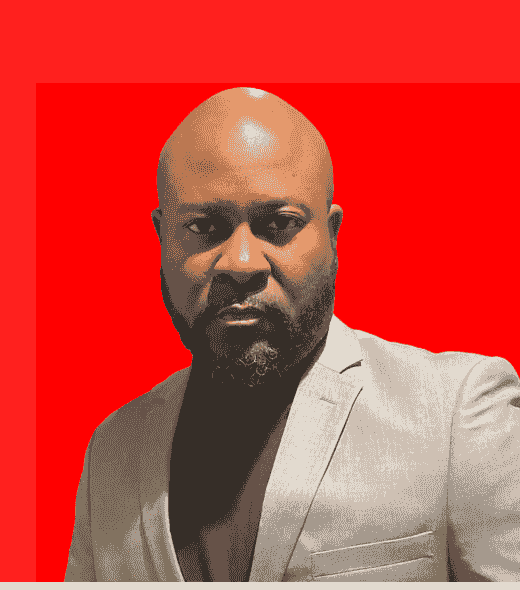
Assistant Professor of Sociology / Africana Studies
University of North Florida
CEO of Ah Shay Institute, LLC.

Ms. Samantha Akwei, MPA
Ghanaian American Digital Marketing & Public Relations Consultant | Front-End Developer & Web Designer/ Advocate for Black Women's Health , Spelman College Alum, class of 2011

Ms. Teonna Woolford
CEO of Sickle Cell Reproductive Education Directive (SC-RED) – United States |and Sickle Cell Warrior www.sicklecellred.org

Research Associate
Global Maternal and Child Health / University of Washington-Seattle, Department of Public Health

Ms. Leah Goldenberg
Research Assistant
The Ohio State University, College of Medicine, class of 2025/ Bioethics and Spanish major
Connect & Collaborate With Us!
Have questions, ideas, or want to collaborate? We’d love to hear from you! Please join our listserv for exciting updates, scientific news, upcoming events or send us an email to reach out and a member of our team will follow-up.
Click Here to Join Our Listserv































